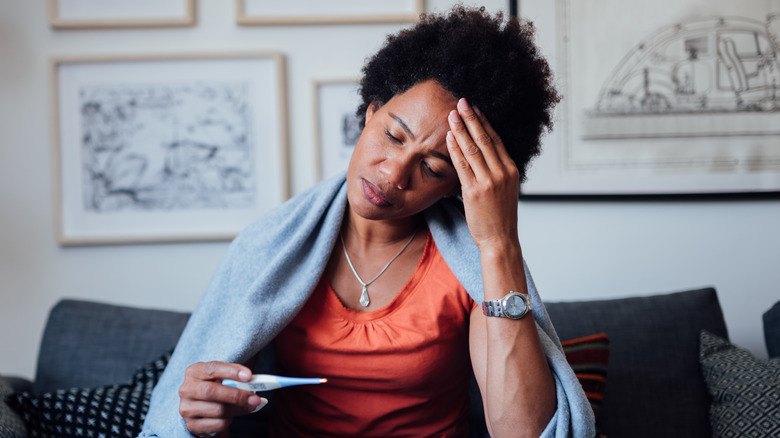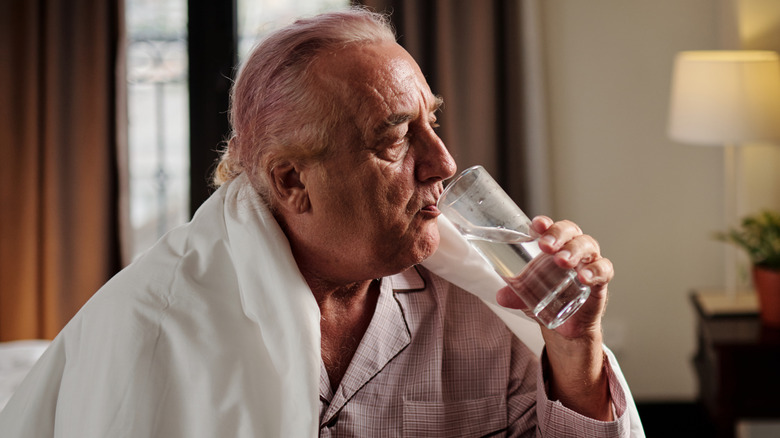Does Your Body Burn More Calories When You're Sick?
What takes place when our body is infiltrated by a nasty virus? According to research found in "What You Need to Know About Infectious Disease" published by the National Academies Press, we become ill when a virus either destroys or interferes with the regular functioning of our cells.
So how does our body respond? Our immune system sends white blood cells and antibodies to the front lines to fight off the virus. Additionally, our body may elicit a fever response to inactivate the virus. While fatigue, headache, and other signature symptoms we experience when sick are anything but pleasant, they are all a result of our body attempting to eliminate the infection at hand in order to keep us safe and healthy.
Although eating may be the last thing you feel like doing when plagued with a cold or fever, it's important that we give our body the sustenance it needs. The reason being that when we're sick, our metabolism kicks into high gear and we're burning calories at a faster rate, reports Scientific American.
Our body needs more calories when sick
For every degree your body temperature climbs when sick, the body expends more energy (via Scientific American). While you may have little desire to eat when feeling under the weather, research has shown that fueling our body with food better equips us to fight off infection. This was demonstrated in a series of rodent studies conducted by Michigan State University nutritional immunology professor Elizabeth Gardner. In a 2005 study published in The Journals of Gerontology, the Michigan State University study team found that 22-month-old mice who were given a calorie-restricted diet and exposed to the flu virus were less likely to survive the infection than mice who freely consumed food. A calorie-restricted diet was also linked with increased viral concentration and suppressed activity of natural killer cells in the animals' lungs. Three years later, a 2008 study published in The Journal of Nutrition proved similar findings for younger mice that were six months of age.
"Our research shows that having a body ready to fight a virus will lead to a faster recovery and less-severe [sic] effects than if it is calorically restricted," Gardner told MSU Today. "Adults can calorically restrict their diet eight months out for the year, but during the four months of flu season they need to bump it up to be ready. You need the reserves so your body is ready for any additional stress, including fighting a virus."
Don't forget to stay hydrated too
Whether you're weathering a fever or a cold, it's important to keep up our caloric intake. However, this doesn't mean that we have to eat until we're uncomfortably full, particularly if you're experiencing nausea or a stomachache. Rather, just eating when you can is enough. Opting for nutrient-rich foods will be your best bet against illness versus foods that are high in saturated fat, which can throw off our body's microbiome (via CNN).
Between its vegetables, electrolytes, protein, and nasal-clearing spices, chicken soup can be a great meal option when ill. Its broth also provides the body with fluid, which is of the utmost importance when sick. Just like food, however, you don't need to kick your liquid intake into overdrive. Instead, stick with the recommended eight glasses of water per day and boost your intake only moderately when ill. When it comes to staying hydrated, water is the way to go, as alcohol or caffeine will dehydrate the body (via Scientific American).



